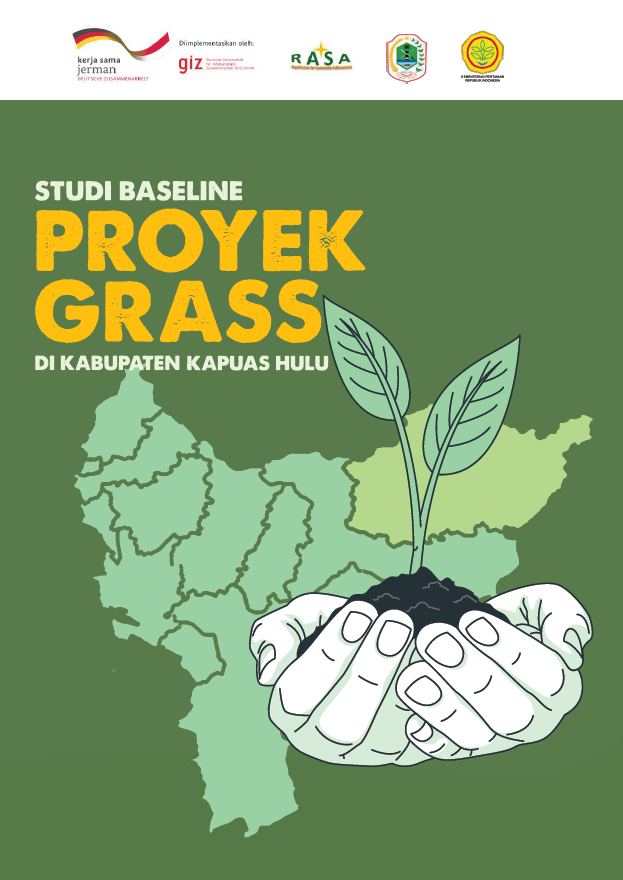Baseline Study of GRASS Project in Kapuas Hulu, West Kalimantan
This document presents the results of the baseline study from the Greening Agricultural Smallholder Supply Chains (GRASS) project in Kapuas Hulu, West Kalimantan, Indonesia. It highlights the household demography of the villages in the project, the livelihoods of the population in the study, land use as well as details of the average total annual household income. It provides details of the value chain and market analysis in the project across three commodities palm oil, rubber and cocoa before providing details of gender and the role of women in the production of these commodities. Recommendations are also presented throughout the document using the results of the study.
The GRASS project supports smallholder farmers in tackling global challenges and mitigating preventable risks. To increase the resilience of independent smallholder farmers to negative external shocks, the project aims to advise and provide technical support to improve smallholder farmers’ and agricultural extension staff’s knowledge of agroecological approaches, improve smallholder farmers’ market access to local and global markets and supply chains. It also aims to raise government agencies’ awareness for resilient and deforestation-free supply chains and promote successful, field-tested concepts and approaches that support smallholder farmer resilience.
This document is in Indonesian, for more information in English on the baseline study of the GRASS project you can visit this presentation here.
